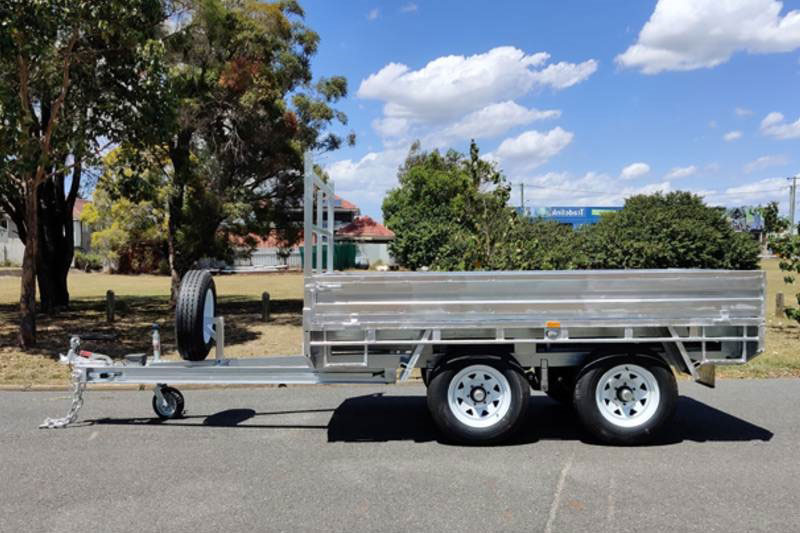In the world of transportation and logistics, choosing the right trailer type is crucial for ensuring efficient and safe delivery of goods. Among the various options available, flat top trailers stand out for their versatility and numerous advantages over other trailer types.
Flat top trailers feature a completely flat and open platform, which allows for easy loading and unloading of goods from any direction, making them suitable for transporting a wide range of cargo, including oversized and irregularly shaped items.
Now, let’s explore some key advantages of flat top trailers over other trailer types:
Versatility
One of the most significant advantages of flat top trailers is their versatility. Unlike enclosed trailers or refrigerated trailers, which are designed for specific types of cargo, flat top trailers can accommodate almost anything that can be loaded onto their platform. From construction materials and machinery to vehicles and large equipment, flat top trailers offer the flexibility needed to transport diverse goods across various industries.
Accessibility
The open design of flat top trailers allows for easy accessibility during the loading and unloading process. Forklifts, cranes, and other loading equipment can access the cargo from all sides, eliminating the need for specialized loading docks or ramps. This accessibility not only saves time but also reduces the risk of damage to the cargo and the trailer itself.
Cost-effectiveness
Flat top trailers are often more cost-effective than other trailer types, especially to transporting oversized cargo. Since there are no walls or roof to contend with, loading and securing such items is more straightforward and requires fewer resources. Additionally, flat top trailers tend to have lower maintenance costs compared to refrigerated trailers or trailers with complex mechanical systems.
Easy Maintenance
Maintaining flat top trailers is relatively simple compared to trailers with complex structures or mechanical components. With fewer moving parts and no enclosed spaces to worry about, routine maintenance tasks such as cleaning, inspection, and repairs can be performed more efficiently, reducing downtime and associated costs.
Weight Considerations
Flat top trailers are typically lighter than enclosed trailers or other specialized trailer types, which can translate to significant fuel savings over long distances. The lightweight construction of flat top trailers also allows for higher payloads, maximizing the efficiency of each trip and reducing the overall cost per mile.
Safety and Security
While the open design of flat top trailers may raise concerns about the security of the cargo, proper securing techniques such as straps, chains, and tie-downs can effectively prevent shifting or damage during transit. Moreover, the visibility provided by flat top trailers allows for easier monitoring of the cargo during transport, enhancing safety and reducing the risk of theft or tampering.
Regulatory Compliance
Flat top trailers often offer better compliance with transportation regulations and restrictions, particularly for oversized or overweight loads. Their open design provides clear visibility of the cargo, making it easier for drivers to adhere to height, width, and weight limits imposed by local authorities.
In conclusion
Flat top trailers offer numerous advantages over other trailer types, including versatility, accessibility, cost-effectiveness, easy maintenance, weight considerations, safety, security, and regulatory compliance. Whether transporting construction materials, machinery, vehicles, or oversized cargo, flat top trailers provide the flexibility and efficiency needed to meet the diverse demands of modern logistics operations. As industries continue to evolve and expand, the popularity of flat top trailers is expected to grow, further solidifying their position as a preferred choice for transportation professionals worldwide.
